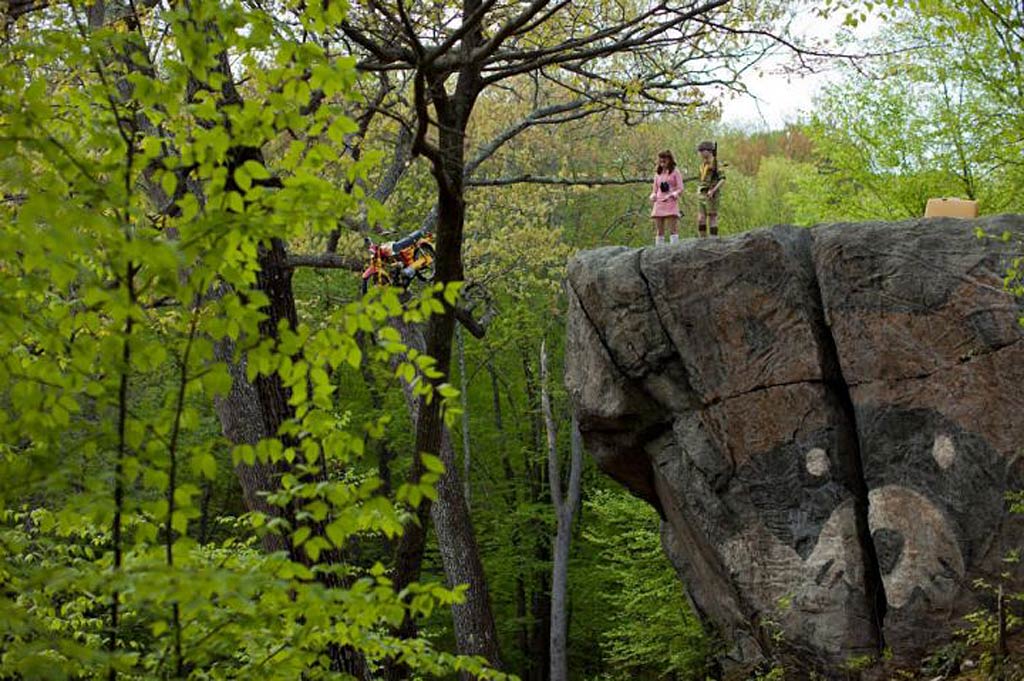
Your support helps us to tell the story
From reproductive rights to climate change to Big Tech, The Independent is on the ground when the story is developing. Whether it's investigating the financials of Elon Musk's pro-Trump PAC or producing our latest documentary, 'The A Word', which shines a light on the American women fighting for reproductive rights, we know how important it is to parse out the facts from the messaging.
At such a critical moment in US history, we need reporters on the ground. Your donation allows us to keep sending journalists to speak to both sides of the story.
The Independent is trusted by Americans across the entire political spectrum. And unlike many other quality news outlets, we choose not to lock Americans out of our reporting and analysis with paywalls. We believe quality journalism should be available to everyone, paid for by those who can afford it.
Your support makes all the difference.I finally "got" Wes Anderson the other day. Which is not to say that I hadn't "got" him before – in the sense of liking his work and always being willing to substitute his vision of the world for mine for an hour or two. Though I'm not very fond of fey art-house whimsy (see references to Miranda July passim), there has always been something about.
Anderson's work that anchored him to the painful inertia of the real world – its resistances of emotion and incompatible life-plan. What I couldn't entirely pin down though was the exact nature of his film-making and – a quality of his films that some hate and some love – their odd "woodenness" (think Bill Murray, an Anderson regular, at his most oakily affectless). Then last week I saw Moonrise Kingdom and realised what it was.
It wasn't Moonrise Kingdom itself that lit the bulb, but checking through Anderson's filmography and realising that the film that had immediately preceded it wasn't The Darjeeling Limited (positively kitchen-sink realism by Anderson's standards) but his claymation version of Roald Dahl's Fantastic Mr. Fox. And suddenly I realised that Anderson had always been an animator – it was just that he mostly uses the real world as his Plasticine. You can see it everywhere in Moonrise Kingdom, from the squared-off geometry of his tracking shots to the perfect art-design.
In The Fantastic Mr. Fox, the director plays a knowing game with realism – using twisted cellophane, say, to produce running water while relishing the fact that it will never get close enough to fool you (the delicious near-misses of claymation are part of the point). In Moonrise Kingdom, it's as if he's working in the opposite direction, delighting in just how artificially he can render the real world.
The point for him would seem to be that photography is less a way of capturing the world and the things in it, than a means for expressing the pictures in his head. He crafts the image like a graphic artist or an animator so that every inch of the screen is under control. The result is an ostentatiously artificial vision, almost like a child's pop-up book in the way that the scenes unfold and produce comical reveals. But the truly distinctive thing about Anderson is not that he does this but that he doesn't make any attempt to hide the fact.
Watch a film like Ridley Scott's Prometheus and there will be long stretches in which you're effectively looking at a moving painting. Anderson, by contrast, contrives his special effects somewhere in front of the lens, with a highly calculated amateurism that is part of the bargain. You're invited to enjoy in the gap between Anderson's presentation of the world and an "imaginary" real correlative – to see that his scout camp is a knowing caricature of a real thing rather than a simulacrum of it. That's where the woodenness comes in too, I think. It's like a cartoonist's signature line, the distinctive proof that nothing you see on screen is an accident of light and lenses. Every frame has an animator's fingerprint on it.
Join our commenting forum
Join thought-provoking conversations, follow other Independent readers and see their replies
Comments